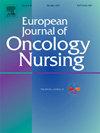影响癌症患者提前护理计划的因素:一项定性研究
IF 2.7
3区 医学
Q1 NURSING
引用次数: 0
摘要
目的本研究旨在探讨影响癌症患者提前护理计划的因素,认识到了解这些因素对提高患者预后和确保患者的偏好得到尊重的重要性。方法本研究于2023年5月至11月进行,采用现象学研究方法进行定性描述性研究。在基于社会生态系统理论的半结构化访谈大纲的指导下,采用深入的面对面访谈和观察来收集影响参与预先护理计划的因素。应用内容分析和主题分析从数据中识别和解释关键主题。结果共17例癌症患者参与访谈。分析揭示了四个主要主题。促进因素包括乐观的健康观点和对预先护理计划的积极态度,这鼓励了参与。相反,诸如缺乏对预先护理计划的理解、误解和消极态度等障碍阻碍了参与。家庭动态发挥了重要作用;对家庭决定的信任促进了讨论,而家庭压力则带来了挑战。围绕死亡的经济负担和文化禁忌,以及对医疗服务提供者的依赖,阻碍了公开对话。这些发现强调有针对性的策略,以提高患者参与提前护理计划的必要性。结论癌症患者的事前护理计划受到乐观的健康观、家庭支持等积极因素的影响,也受到误解、文化禁忌、经济负担等障碍因素的影响。需要有针对性的干预措施来增强患者的权能,并使护理更好地符合他们的价值观。本文章由计算机程序翻译,如有差异,请以英文原文为准。
Factors influencing advance care planning among cancer patients: A qualitative study
Purpose
The study aims to explore the factors influencing advance care planning among cancer patients, recognizing the importance of understanding these factors to enhance patient outcomes and ensure that patients' preferences are honored.
Methods
Conducted from May to November 2023, this qualitative descriptive study employed a phenomenological research approach. In-depth face-to-face interviews and observations were utilized to gather insights into the factors influencing participation in advance care planning, guided by a semi-structured interview outline based on social ecosystem theory. Content analysis and thematic analysis were applied to identify and interpret key themes from the data.
Results
A total of 17 cancer patients participated in the interviews. The analysis revealed four main themes. Facilitating factors included optimistic health views and positive attitudes toward advance care planning, which encouraged engagement. Conversely, barriers such as a lack of understanding of advance care planning, misconceptions, and negative attitudes hindered participation. Family dynamics played a significant role; trust in family decisions facilitated discussions, while family pressure created challenges. Economic burdens and cultural taboos surrounding death, along with reliance on healthcare providers, impeded open conversations. These findings highlight the necessity for targeted strategies to enhance patient involvement in advance care planning.
Conclusion
Cancer patients' advance care planning is influenced by positive factors like optimistic health views and supportive family dynamics, as well as obstacles such as misconceptions, cultural taboos, and economic burdens. Targeted interventions are needed to empower patients and better align care with their values.
求助全文
通过发布文献求助,成功后即可免费获取论文全文。
去求助
来源期刊
CiteScore
4.40
自引率
3.60%
发文量
109
审稿时长
57 days
期刊介绍:
The European Journal of Oncology Nursing is an international journal which publishes research of direct relevance to patient care, nurse education, management and policy development. EJON is proud to be the official journal of the European Oncology Nursing Society.
The journal publishes the following types of papers:
• Original research articles
• Review articles

 求助内容:
求助内容: 应助结果提醒方式:
应助结果提醒方式:


